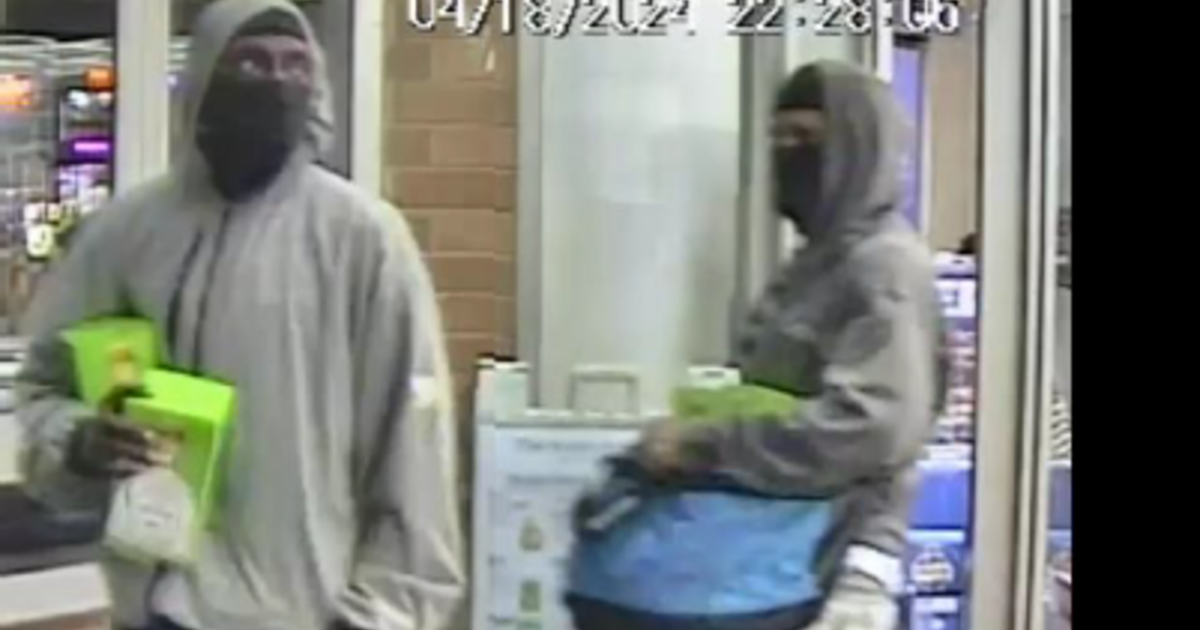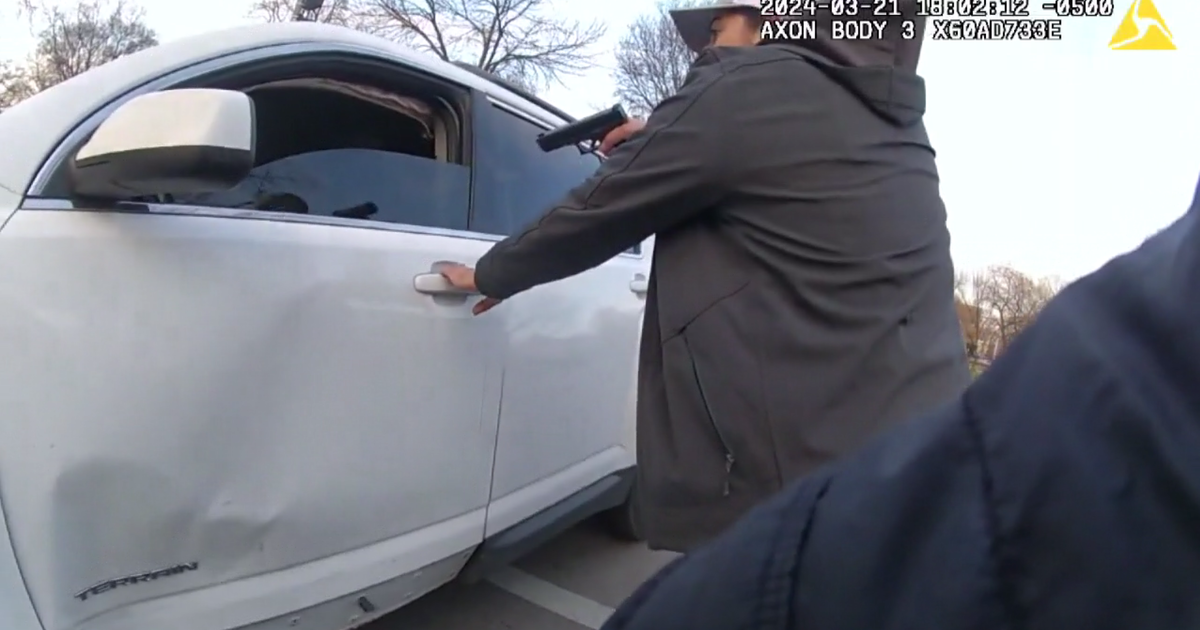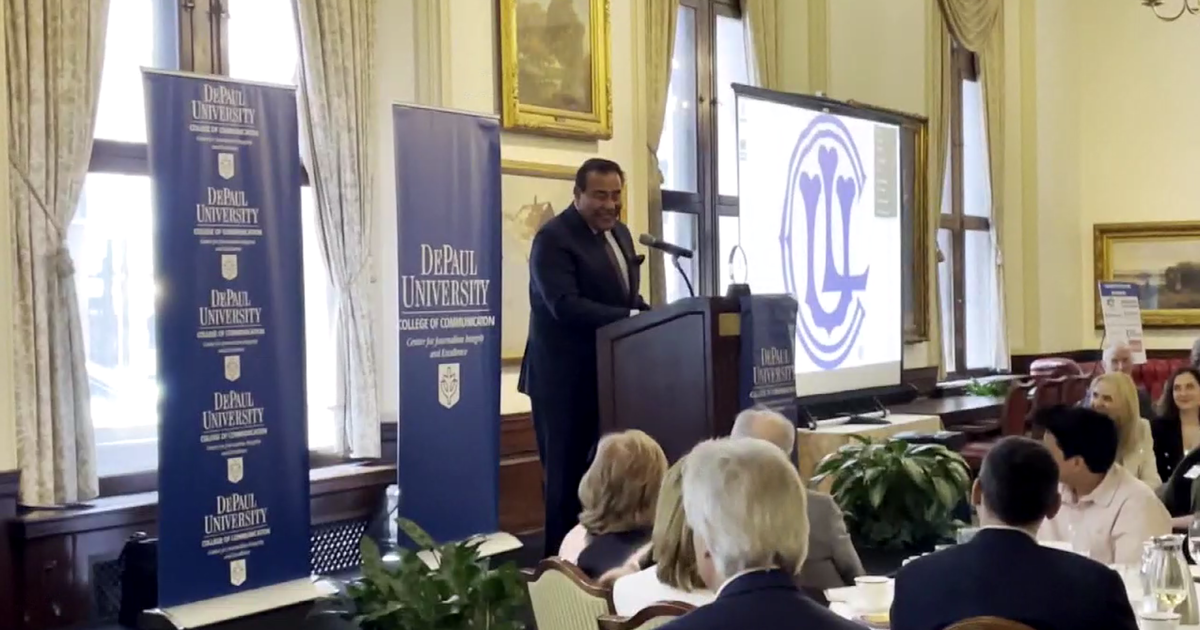Emanuel Drastically Scales Back Speed Camera Plan
UPDATED 03/14/12 - 4:50 p.m.
CHICAGO (CBS) -- Mayor Rahm Emanuel drastically scaled back his plan for installing speed cameras on Chicago streets as he presented it to the City Council Wednesday.
Under the proposal unveiled Wednesday, first-time offenders would only receive warnings for speeding violations, and nobody would receive more than a warning for the first 30 days after the cameras were turned on.
Under the state law that authorized the cameras last month, vehicle owners would be subject to a fine of up to $50 for being caught driving 6 to 10 miles an hour over the speed limit. Drivers going 10 miles an hour or more over the limit would be fined up to $100. Fines would be doubled if they are not paid on time and five unpaid fines would result in the loss of the owner's driver's license.
LISTEN: WBBM Newsradio Political Editor Craig Dellimore reports
Podcast
The city was given the green light to use speed enforcement cameras with 1/8 of a mile, or one city block, around schools between 6 a.m. and 10 p.m. each weekday. But Emanuel's new proposal limits the camera use around schools to 7 a.m. to 7 p.m. weekdays.
The state bill also allowed speed enforcement cameras to be used within 1/8 of a mile around parks from one hour before the parks open to one hour after they close, which would have meant the cameras would only be shut off between midnight and 5 a.m. But the new plan calls for operating the cameras only when the parks are open.
The total number of cameras would also be limited to 360. That will be double the number of red light camera locations, but as Ald. Scott Waguespack (32nd) pointed out earlier this week, there could have been about 1,800 cameras if the city had decided to mount them at each and every school and park.
As CBS 2 Chief Correspondent Jay Levine reports, the mayor -- at least temporarily -- avoided a major confrontation with the aldermen, by not telling them what was in the ordinance until after it was introduced. Though it seems like that's only delaying the inevitable.
Reporters waited all morning for the speed camera bill to be introduced. So did the aldermen, some seeing it for the first time when reporters showed it to them.
"There's some inconsistencies there that indicate to me that this is not about the safety of the children," said Ald. Leslie Hairston (5th) "It is about making money."
Ald Walter Burnett (27th) said, "Some folks are getting killed, because people are speeding. So, we gotta be concerned about public safety, but we also gotta be concerned about not gouging the citizens of the city of Chicago."
When the mayor finally appeared to talk about the final plan, he was accompanied by a priest and two doctors.
"This is an issue of school safety," said Fr. Chris Devron, of Christ the King High School.
Devron, who's also the President of Christ the King High School – where there have been five speed-related accidents in just nine months – admitted this shouldn't be a one-size-fits-all policy.
"I think we have to try to figure out, you know, what makes sense for a given area; and I think the mayor is committed to doing that," Devron said.
Emanuel said, "I'm always open to hearing what the aldermen have to say. What I won't compromise on is the objective of creating a safety around our parks, and our schools; where our kids play, our kids learn.
The mayor also reiterated that RedFlex Traffic Systems, a company run by longtime Emanuel ally Greg Goldner, will not be guaranteed the contract for the cameras. he contract will be put out to bid, Emanuel said.
"What isn't different is the goal," Emanuel said. "Our goal is to protect our children."
Also Wednesday:
• The City Council approved a plan to gradually phase out the Minority- and Women-Owned Business contracting program. The goal is to allow such businesses to "graduate" from their special designations and enter the marketplace to be competitive with all similar businesses.
• The Council also approved an ordinance to strengthen the Life Safety Evaluation provisions in the city Building Code. Residential building owners will now be required to submit fire safety plans, as well as written statements that residents can read showing the owners are in compliance.
• Emanuel introduced a new Tax Preparer Ordinance, which would crack down on unscrupulous tax preparers who use hidden charges and recommend unnecessary tax refund products. The ordinance places new regulations on tax preparers to prevent bad business practices. the City Council approved the ordinance Wednesday.
• Mayor Emanuel introduced an ordinance that would allow Taste of Chicago patrons to buy tickets to three-course meals by renowned local chefs such as Graham Elliot of the eponymous restaurant and Jimmy Bannos of Heaven on Seven, and sit that the Petrillo Music Shell during evening concerts. Admission to the festival and lawn seating will remain free.
The city is drastically cutting back the Taste of Chicago this year. The festival will be reduced from 10 days to five, and will also be moved from the time around the July 4 holiday to mid-July.
• Mayor Emanuel introduced a plan for a large-scale bicycle sharing program on Chicago. Under the plan, Portland, Ore.-based Alta Bicycle Share Inc. would put out 3,000 bicycles and docking stations around Chicago this year, and 1,000 more bikes and 100 additional stations next year.
• Ald. Proco "Joe" Moreno introduced an ordinance that would make two existing City Council committees responsible for monitoring transgender issues in the Chicago Police Department. The Police Treatment of Transgender Individuals Ordinance would require officers to respect each person's unique gender identity, and add gender identity to the definitions specified in Police Department policy, the Chicago Phoenix explained.
• Emanuel introduced a revised Cable Communications and Ethics Ordinance, to ensure that all Chicago customers would receive equal service. The ordinance also allows the city to collect revenue from premium cable service, and removes outdated provisions such as the prohibition against a cable operator selling TV parts and receivers.
• The mayor and the Department of Business Affairs and Consumer introduced a new 10-year franchise agreement for RCN Cable to operate in Chicago. RCN would be required to pay the city and Chicago Access Network TV a total of 1 percent gross revenues as part of the agreement. Back in 2004, RCN got in trouble with the city and was fined $1 million per day for failing to fund the public access station.
• The mayor introduced an ordinance to create a new Chicago Infrastructure Trust, for the purpose of leveraging private investment to upgrade the city's infrastructure. Boeing executive vice president James A. Bell will be the first chairman of the trust.
• Mayor Emanuel introduced an ordinance to improve access to breast and cervical cancer screenings and diagnostic services for women who use Chicago Department of Public Health clinics.
• The Chicago Department of Aviation introduced an ordinance calling for the installation of seven electric vehicle charging stations each at O'Hare and Midway international airports.



